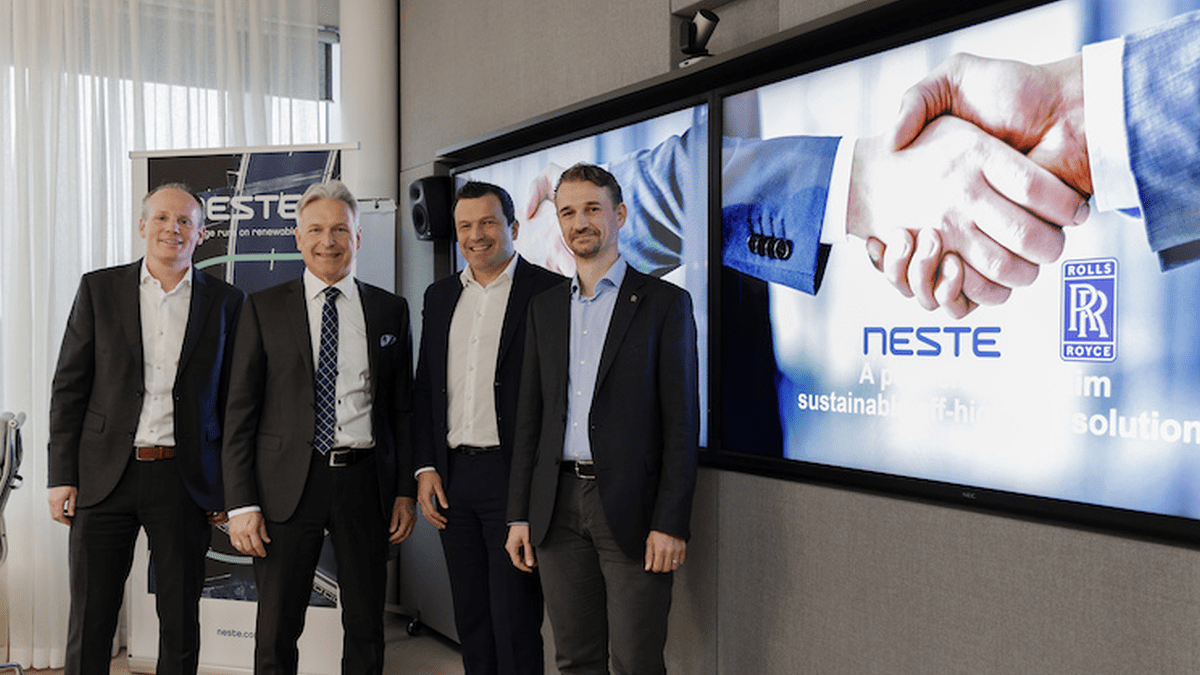Agreement includes push for use of existing engines with ’sustainable fuels’ and ’knowledge-sharing’ on the renewable diesel known as hydrotreated vegetable oil (HVO)
Rolls-Royce and Neste have signed a memorandum of understanding (MoU) for a strategic partnership that aims to promote the use of ’sustainable’ fuels in Rolls-Royce mtu diesel engiens and work on high-quality HVO.
HVO, according to Finnish oil refiner Neste, “is produced through a hydrotreatment process. The result is an HVO diesel that has a similar chemical composition to fossil diesel. This chemical resemblance enables renewable diesel to be used in all diesel engines in up to a 100% concentration, or to be blended in any ratio with fossil diesel”.
Neste said HVO is more readily compatible and combinable with fossil-based diesel fuel than other biofuels.
Neste also claims its fuel allows for a 75-95% reduction in greenhouse gas (GHG) emissions “when emissions over the fuel’s lifecycle are compared with fossil diesel”.
“Since May 2022, Rolls-Royce has approved mtu diesel engines for power generation for renewable diesel and other EN15940 fuels. The tests we have done show an up to 90% greenhouse gas reduction, up to 80% less particulate emissions and an average of 8% nitrogen oxides reduction. All our tests revealed full performance without modifications to the engines,” Rolls-Royce Power Systems division vice president Michael Stipa said.
Rolls-Royce Power Systems said it is gradually releasing its main mtu engine series for sustainable fuels such as HVO and e-diesel for use in applications including the maritime industry.
Neste currently has a global production capacity of 3.3M tonnes annually (mta) for its refined renewable fuel products. Neste’s ongoing Singapore expansion project and a joint venture with Marathon in Martinez, CA, once completed, will increase the company’s total production capacity to 5.5 mta by the end of 2023. The projects will give Neste production facilities for renewable fuels and renewable feedstock for polymers and chemicals on three continents. The company is also expanding its Rotterdam refinery which, when completed, will push its total production capacity of renewable products to 6.8 mta by the end of 2026.
“Through our ‘Net Zero at Power Systems’ sustainability programme, we have committed to realigning our mtu product portfolio so that by 2030, sustainable fuels and new mtu technologies will reduce greenhouse gas emissions by 35% compared with 2019. This near-term target plays an important role in helping the whole of Rolls-Royce realise its net zero ambitions,” Rolls-Royce Power Systems stationary power solutions president Tobias Ostermaier said.






